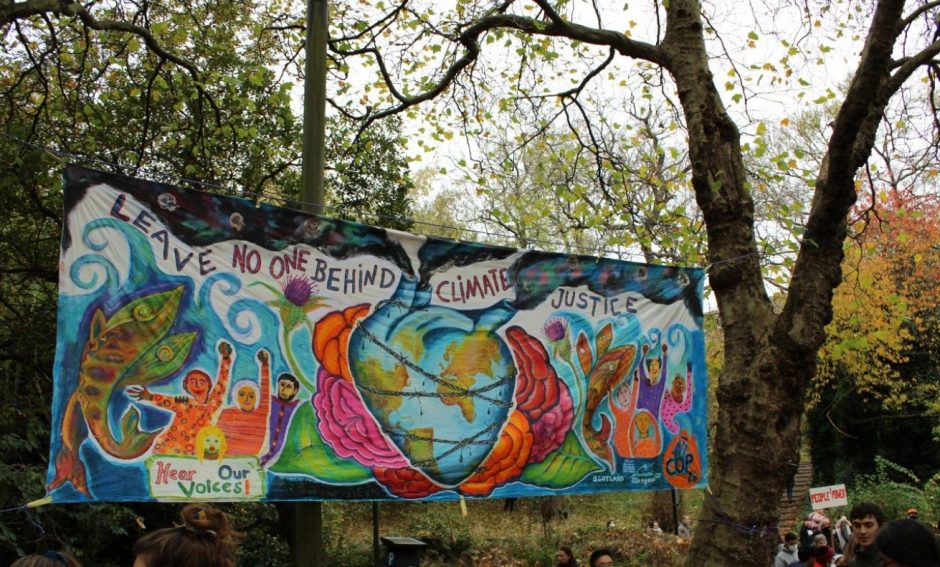In the thicket of contemporary discourse, the notion of climate justice emerges as a clarion call for a world increasingly beleaguered by the ramifications of human activity. It suggests an imperative wherein the consequences of ecological degradation are equitably addressed, drawing upon the teachings of the Bahá’í Faith, which posits that justice is not merely an abstract concept but a tangible right inherent to all humanity. The Bahá’í perspective encourages a profound understanding that climate justice suffers when we alter the climate, rendering our planet not merely a backdrop for human activity but a living entity deserving of reverence and care.
To grasp the urgency of this message, one must first examine the intricate web of connections between climate change and social equity. The Bahá’í teachings advocate for the oneness of humanity, implying that the welfare of one is inextricably linked to the welfare of all. Consequently, the deleterious effects of climate change disproportionately impact marginalized communities, thus amplifying existing inequalities. This divergence creates a moral imperative and reinforces the Bahá’í principle that justice must prevail in our pursuit of environmental stewardship.
Visualize a tapestry, woven meticulously with threads of diverse colors and textures, symbolizing the collective human experience. Each thread represents a unique community, interlaced yet distinct, epitomizing our shared existence. As climate change unravels this tapestry, it underscores the urgent need for a unified response—an acknowledgment that the threads bind us together and that the shredding of one diminishes the entirety. In this context, the Bahá’í teachings illuminate the path forward, suggesting that climate justice is not merely about alleviating suffering but about nurturing our interconnectedness.
Moreover, the Bahá’í principle of moderation augments this discourse by advocating for a balanced approach to consumption, one that recognizes the limitations of our ecological resources. The rampant consumerism that characterizes modern society serves as an affront to these ideals, manifesting a paradox where excess breeds scarcity. The teachings implore humanity to embrace simplicity and moderation, encouraging mindful stewardship of resources. Such an approach is pivotal in mitigating climate change and its far-reaching consequences, thereby safeguarding the equilibrium of our global ecosystem.
Within the framework of Bahá’í philosophy, the notion of divine economies reveals an intricate sophistication in the relationship between humanity and nature. By recognizing the earth as a sacred trust, individuals are urged to enact policies and practices that reflect this reverence. Engaging in sustainable agricultural practices, reducing waste, and promoting renewable energy are steps that echo these teachings. Each act, however small, contributes to the grand mosaic of climate justice and highlights the unique appeal of Bahá’í ethics in the environmental arena.
The interdependence of humanity and nature constitutes a central tenet of the Bahá’í Faith. This intimate relationship accentuates the necessity of safeguarding the planet, not only for ourselves but for future generations. It is a stewardship rooted in the understanding that we do not inherit the earth from our ancestors; instead, we borrow it from our children. This profound realization necessitates a paradigm shift—an evolution in consciousness that transcends mere environmental advocacy to encompass a broader commitment to justice and equity.
In this light, the Bahá’í teachings serve as a formidable compass, guiding humanity toward a future where climate justice is intrinsic to our collective identity. The metaphor of the garden emerges powerfully within this framework. Just as a garden flourishes through the careful nurturing of diverse flora, so too does humanity flourish through the cultivation of justice, compassion, and understanding. The beauty of this garden lies in its biodiversity, reminding us that the richness of our experiences is echoed in our environmental engagement.
Contemplating the practical implications of these teachings necessitates an examination of both policy and personal behavior. Equitable climate policies must prioritise the voices of those most affected by climate change. As Bahá’ís work towards sustainable solutions, they do so with an awareness that justice transcends borders, cultures, and ideologies. This internationalist perspective encourages collaboration, fostering global alliances that champion environmental sustainability and social equity.
On an individual level, adhering to the principles of restraint, gratitude, and responsible citizenship unveils a transformative potential. Practicing mindfulness in consumption and advocating for sustainable practices cultivates a personal commitment to the principles of justice espoused by the Bahá’í teachings. Simple actions, such as reducing one’s carbon footprint, supporting ethical businesses, and educating oneself and others about climate issues, encapsulate the essence of a justice-oriented approach to the climate crisis.
Ultimately, the dialogue surrounding climate justice necessitates an acknowledgment of our shared humanity, an ongoing commitment to understanding the systemic inequities exacerbated by climate change, and a willingness to act. The Bahá’í Faith provides not only a moral framework for these conversations but also invites us to envision a future wherein climate justice is realized through collective action and a profound reassessment of our relationship with the planet. The vitality of this vision lies in its inclusivity and the recognition that, in the pursuit of justice, we cultivate not only a healthier planet but also a more equitable world.
In conclusion, the Bahá’í teachings illuminate the path toward a just and sustainable future, asserting that climate justice suffers profoundly when we allow our actions to alter the delicate balance of the environment. Emphasizing our interconnectedness, advocating for moderation, and fostering a spirit of stewardship are all critical elements in our quest for climate justice. Such an endeavor is not merely an option but a sacred duty, for to nurture the earth is to honor our collective humanity.
